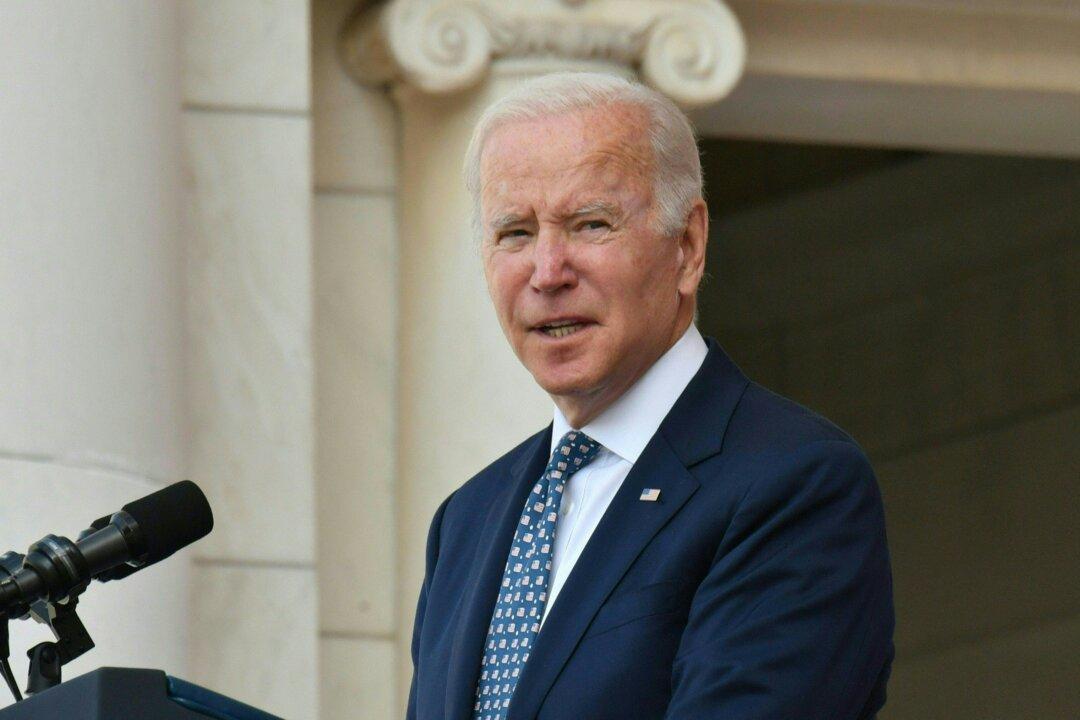The Trump-linked America First Policy Institute filed a lawsuit against the Biden administration over its COVID-19 vaccine-or-test mandate for private businesses with 100 or more employees.
The group’s Constitutional Litigation Partnership, which helped former President Donald Trump file his lawsuit against Facebook and Twitter earlier in the year, asked the 8th Circuit Court of Appeals (pdf) to temporarily block the Occupational Safety and Health Administration (OSHA) rule that was handed down last week.





